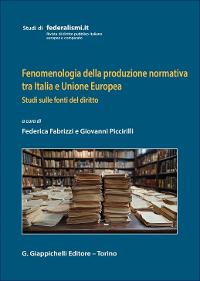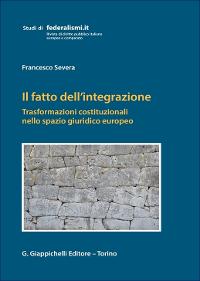
Log in or Create account
FOCUS - Human Rights N. 1 - 25/06/2018
Aliens' protection against expulsion and prohibition of collective expulsion by the Jurisprudence of the European Court of Human Rights
Over the course of the last decades, the European Court of Human Right’s (ECtHR) jurisprudence has extended the protection of immigrants’ rights by means of a flexible interpretation of the European Convention of Human Rights (ECHR). It did so by appealing to the universal dimension of these norms – i.e. referring to any person, even though not directly aimed at regulating the condition of immigrants themselves. In particular, the ECtHR has outlined a juridical base to protect irregular immigrants from expulsion at the presence of given circumstances which actually extend the safeguards provided by immigration laws. Even though the ECtHR’s jurisprudence follows the international praxis, which acknowledges State’s prerogatives to control aliens’ admission – and with it the right to reject and expel immigrants – it has nonetheless limited the range of discretion of the High Contracting Parties. This is for instance the case when the return decision threatens the right to life (Article 2), does not guarantee compliance with the prohibition of torture (Article 3), does not secure the right to respect for private and family life (Article 8) or the right to an effective remedy (Article 13) of a third country’s citizen. While the recourse to Article 2 of the ECHR didn’t produce a significant jurisprudence, Article 3, enclosing the prohibition of torture and inhuman or degrading treatment, has often allowed the Strasburg Court to protect the rights of immigrants. In this way, the Courts guarantees compliance with the principle of non-refoulement, that is the prohibition of expulsion or extradition towards countries wherein there is a serious risk that a person would be subjected to the death penalty, torture or other inhuman or degrading treatment or punishment. The Soering case is the first example of such jurisprudence, whereby immigrants are provided indirect protection within the ECHR’s scope. In this case, the ECtHR found that if there is a real risk for the applicant of being subject to treatments in breach of Article 3, or of other severe violations of fundamental rights in the country of destination, the Member State shall not proceed with expulsion measures. The same principle has also been followed by the Court as far as the expulsion of irregular immigrant is concerned. The Cruz Varas case, which paved the way for further decisions on the same subject, dealt with the irregular entry in Sweden by a Chilean citizen. The applicant was a political opponent of the Pinochet regime. After being arrested and persecuted in his country, he illegally flew toSweden, where he applied for asylum. Nonetheless, he was denied it and a procedure of expulsion started… (segue)
NUMERO 13 - ALTRI ARTICOLI
-
ITALIA - DOTTRINA
Riflessioni in tema di giustizia, economia e certezza del diritto
-
ITALIA - DOTTRINA
Diritti e libertà alla prova dell'economia della condivisione
ITALIA - DOTTRINALa Fondazione Italia Sociale nel sistema pubblicistico di vigilanza e di promozione del Terzo Settore
ITALIA - DOTTRINAImprese di matrice religiosa e modelli organizzativi del Terzo settore
-
ITALIA - DOTTRINA
Una proposta di Stato 'da cui ripartire'



 Registrati
Registrati Login
Login
 Territorio e istituzioni
Territorio e istituzioni Lavoro Persona Tecnologia
Lavoro Persona Tecnologia America Latina
America Latina Africa
Africa Osservatorio di Diritto sanitario
Osservatorio di Diritto sanitario Osservatorio sul diritto elettorale
Osservatorio sul diritto elettorale Osservatorio Trasparenza
Osservatorio Trasparenza Human Rights
Human Rights Storico focus
Storico focus Riforme istituzionali e forma di governo
Riforme istituzionali e forma di governo Scarica il Documento integrale
Scarica il Documento integrale
 STUDI FEDERALISMI
STUDI FEDERALISMI





25/01/2023
14/10/2022
18/05/2022
22/09/2021
28/12/2020
27/07/2020
05/02/2020
04/10/2019
01/05/2019
26/12/2018
29/10/2018
25/06/2018
29/12/2017
28/07/2017
13/03/2017
07/10/2016
17/06/2016
22/01/2016
25/09/2015
03/07/2015
03/04/2015
16/01/2015
24/10/2014
20/06/2014
28/03/2014
20/12/2013
16/09/2013
17/05/2013
15/02/2013